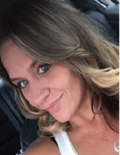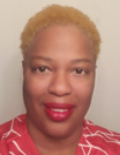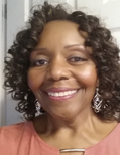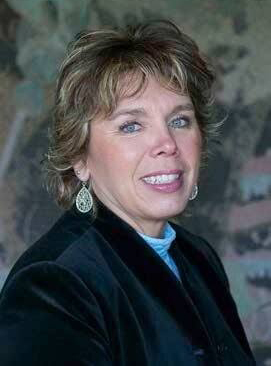The Center for Advanced Studies in Child Welfare held our 2022 Annual Spring Child Welfare Conference April 20 & 21st.
Supporting Collaborative Birth and Foster Parent Relationships in Child Welfare
This year’s virtual CASCW conference featuring speakers and panelists as they explore how child welfare workers can best facilitate and support birth and foster parent relationships to improve outcomes for children and families. The audience will learn current strategies and best practices from those with professional and personal experience.
Conference videos and Powerpoints now available in session tabs.
Day One — Held on April 20, 2022 (watch all presentations for Day One)
Join national child and family wellbeing advocates Shrounda, a kinship caregiver and child welfare system impacted parent, and Katie, a resource caregiver and adoptive parent, for a robust conversation about the personal experiences that led to them working side by side, making their vision of a system that prioritizes relationships, partnerships and maintaining family connections a reality. This session will leave you pondering “What is my why?” By sharing their stories of transformation with you, Katie and Shrounda will make you laugh, cry and most importantly, learn and grow.
Keynote Speakers: Shrounda Selivanoff and Katie Biron
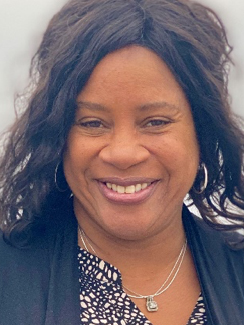 Shrounda Selivanoff Shrounda Selivanoff |
Shrounda Selivanoff is the Director of Public Policy at Children’s Home Society of Washington. She brings a fierce and passionate voice advocating for systemic change for parents and their children involved with the child welfare system. She was previously involved with the system due to a severe drug and alcohol addiction. Through life challenges, she has preserved. At present, she continues to learn more about the child welfare system from a kinship caregiver’s perspective to her grandson.
Shrounda’ s child welfare experience birthed an advocate seeking to destigmatize parents and move towards a system that empowers and values parents as partners. Shrounda’ s work prioritizes marginalized and disenfranchised families and relentlessly pursues policy change and system reform towards preserving and strengthening families. She has a keen understanding of change agents’ transformational power, the impacts and barriers of policies, and the vital importance of creating connections for children and families so they may thrive in their families and communities. Shrounda has extensive work experience with the King County Parents for Parents Program, Washington State Office of Public Defense’s Parent Representation Program, and other programs such as the Perinatal Treatment Services and the University of Washington Fetal Alcohol Drug Unit Parent-Child Assistance Program. Shrounda is the recipient of the 2021 Casey Excellence for Child Award and the 2021 Unsung Hero Award by the Department of Children, Youth, and Families Strengthening Families in partnership with Seattle Child. She is also a member of the Washington State Parent Ally Committee, a founding member of the Birth Parent National Network, Executive Board member of Family Treatment Court of King County, the Co-Chair of the Department of Children, Youth and Families Oversight Board, a national consultant for Casey Families and the Children’s Trust Fund Alliance serving multiple jurisdictions across the United States. She provides a parent lived experience perspective on the state, local and national platforms, all in pursuit of justice and family preservation. |
 Katie Biron Katie Biron |
Katie Biron is a foster and adoptive parent. Believing that children do best when all the adults in their life are able to work together as a team, Katie’s passion is helping caregivers and parents build child-centered relationships with each other.
Katie started her journey in the world of adoption and foster parenting when she and her husband adopted their first daughter 13 years ago, and then fostering their son, whom they eventually adopted. Due largely to her relationship with her oldest daughter’s mom, Katie saw a need to help other caregivers and adoptive parents understand why children need connection to their first families, as well as provide practical tools and suggestions for building and maintaining these essential relationships. These and other experiences led her to create Fostering Connections for Families, where she authored a training course on building and maintaining connections between all the important people in a foster child’s life. Katie is the co-creator and Program Manager of the Family Connections Program™ (www.fcpwa.org). The Family Connections Program focuses on developing a network of support for families involved in the child welfare system by establishing relationships focused on the child’s wellbeing. This program helps caregivers and parents build a working relationship to maintain essential connections for the child placed in out-of-home care. The goal of the program is to reduce the trauma experienced by these children by supporting and facilitating a positive relationship between the child’s parents and caregivers. A legislative bill establishing this program in WA state was signed into law in 2020 (House Bill 2525). Katie also helped design Amara’s Strong, Tough and Resilient (STAR) Adoptive Parent Group, which provides an opportunity for adoptive parents to create a lasting community with one another and gain tools and resources to advocate for and support adoptees. Katie is a member of numerous committees at the state and local level, including the Washington State Dept. of Youth and Family Services Legislative Oversight Board. Katie blogs about foster care and adoption at www.fosteringconnectionsforfamilies.com, and in her spare time, enjoys being crafty, working in her garden, and dreaming of drinking her coffee while it’s still hot. She and her husband Jonathan live outside Seattle, WA with their four children. |
Dr. Lewis will present findings from an external evaluation of Quality Parenting Initiative (QPI), one effort to promote high-quality foster care by strengthening partnerships among foster care stakeholders. During this presentation, Dr. Lewis will: 1) discuss the importance of stakeholder relationships to improve outcomes for youth in care; 2) describe perceptions of QPI’s impact on the birth and foster parent relationship; and 3) identify strategies for foster care agencies to incorporate that promote frequent, positive interactions across stakeholders. Time will be provided for questions, comments, and suggestions from the audience and responses from Dr. Lewis.
Speaker: Dr. Ericka Lewis
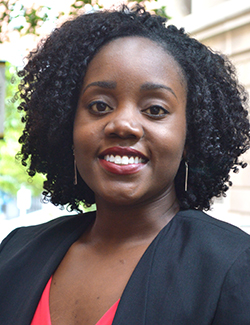 Dr. Ericka Lewis Dr. Ericka LewisUniversity of Maryland |
Ericka M. Lewis, LMSW, Ph.D. is an Assistant Professor at the University of Maryland’s School of Social Work. Ericka’s research examines the risk and protective factors that influence family functioning and child well-being. An extension of her research seeks to improve the accessibility and quality of parent training programs and mental health services for families of color by developing, implementing, and evaluating interventions. Ericka received her doctoral degree from the Brown School at Washington University in St. Louis. Ericka’s research is informed by over 7 years of practice experience as a licensed social worker and Senior Training Specialist for the National SafeCare Training and Research Center (NSTRC). In this role, she trained professionals, across the United States and United Kingdom, to become home visitors, coaches, and trainers in SafeCare, an evidenced-based parenting intervention to prevent child maltreatment. Supported by the Doris Duke Charitable Foundation, Administration for Children and Families, and the Annie E. Casey Foundation, Ericka has conducted several studies examining client, provider, and organizational factors impacting successful implementation of evidence-based services for children and families. Ericka’s most recent study examined the role of organizational context and racial equity on the implementation of Quality Parenting Initiative, an evidenceinformed program to improve foster care services. |
Members of the Birth and Foster Parent Partnership discuss policies and practices that child welfare systems and other organizations are putting in place to support birth parents and foster parents in working together to promote the well-being and stability of children and youth who enter care. Research and experience both demonstrate the value when staff, birth parents, and foster parents work in partnership to achieve better outcomes for families and children. Presenters will share their experiences in building and supporting meaningful partnerships and discuss how children/youth are more likely to thrive when the important adults in their lives collaborate with each other and share responsibilities and decision-making. You will also have the opportunity to learn about two new complementary resources created by the BFPP including the Birth and Foster Parent Partnership: A Relationship Building Guide and the Birth and Foster Parent Partnership: A State and Local Leader’s Guide to Building a Strong Policy and Practice Foundation
| Robyn Robbins is a Resource/Foster parent from Northern California who has been supporting families and their medically fragile infants in the Child Welfare System for over 20 years. During this time her focus has expanded to include advocacy, training, mentorship, and teamwork specifically geared to help create strength based, solution focused practice and policies that allow families to heal and thrive. At the national level she is actively involved in speaking engagements, trainings, and participation in groups such as the National Birth and Foster Parent Partnership and others that focus on relationship building and community collaboration practices that thoroughly embed people with lived experience to create successful child and family outcomes. At her local county level, she and her birth parent mentor partner have succeeded in creating a partnership program that now functions as a regular unit in their county child welfare department. She thoroughly believes that children and families deserve racial equity and strong loving homes and communities where they will thrive. | |
| Jody Rodgers is a single mother of three children. She has overcome homelessness, drug addiction and the cycle of domestic violence. Jody became involved in the child welfare system when her three children were removed. Jody says it was the “worst and best day of her life.” It was the beginning of her getting her life back and her children getting the mother that they deserved. She realized that every decision she had made directly affected her children, and they had no choice in all of it. That day Jody said, “no more” and from that moment on she never used drugs again. Jody utilized and grew from the services she was offered and reunified with her children.
Currently, she is raising her three kids and working at her dream job as a Parent Mentor. She is employed at the Child Parent Institute in Sonoma County where she supports and assists parents in navigating the child welfare system and services. Being a Parent Mentor is not just a job but her calling. Jody was instrumental in bringing a unique and innovative Birth Parent/Foster Parent Partnership model to her county. She and another committed foster parent are working closely to advocate as a united front for families involved in the child welfare system. They support and mentor birth and foster parents in building relationships with the goal of helping the parents to reunify with their children, whenever possible. Jody is a member of the Birth and Foster Parent Partnership. |
|
| Paula Bibbs-Samuels is married and the mother of two children ages, 26, and 25 years of age. When her children were young, she became involved with the child welfare system due to parenting and discipline issues with her youngest son. Through the investigation process, it became clear that Paula was utilizing similar parenting practices to those used by her own family when she was young. Fortunately, her children were never removed from her home. Paula learned many things about herself as she worked to successfully complete her case plan. She realized that the way she was disciplining her children was not an effective parenting approach. Though she had previous child welfare involvement, her successful completion of her own case and her advocacy work put her in a position to be a fictive kinship placement for a then 14 year–old who she still has relationship with at 23 years of age.
Today, Paula is a passionate advocate for parents and families. She believes that keeping the biological family unit together is vitally important and she thinks that child welfare service staff and others should work towards this common goal. She is a member of the Birth and Foster Parent Partnership. Since 2008, Paula continues to serve as a Commissioner on the Supreme Court of Texas Children’s Commission, a statewide, multi-disciplinary collaborative body which has membership from the executive, judicial, and legislative branches of Texas government as well as child welfare partners in the private sector. |
|
| Marquetta King and her husband have provided treatment foster care to children in Maryland for the past 11 years. While their focus has primarily been with teenage boys, they recently stretched their boundaries and accepted two teenage girls. In addition to providing foster care, they also provide respite for other foster parents.
After enjoying a 20-year civilian career with the Navy as an accountant, bookkeeper, and auditor, Marquetta responded to the call of becoming an advocate and voice for foster and adoptive children. She often reviews state policy and procedures to provide support to other foster parents. She is a member of her agency’s Foster Parent Advisory Board. She has also served on the board of Together as Adoptive Parents, Inc. (TAP) for over twelve years. TAP is a non-profit adoptive, foster and kinship parent support group. Their purpose is to recruit families to adopt youth from the foster care system, and to be a continuing support network to those families once they have started the adoption process. Since moving from Pennsylvania to Maryland, Marquetta has taken an active role in recruiting families to become foster parents to youth in the Harford County area. Marquetta is a member of the Birth and Foster Parent Partnership (BFPP). |
Day Two — Held on April 21, 2022 (watch all presentations for Day Two)
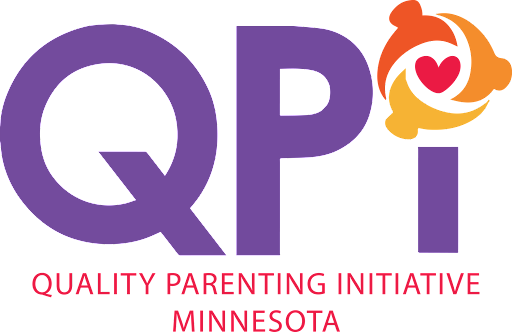 Panelists will share insights and experience that effectively address system barriers in child welfare through partnership of lived experience individuals, agency staff and county organizations, court personnel, and the supportive community-based providers. Creating and nurturing relationships across roles and organizations is necessary to truly leverage the collective wisdom to support our youth and families within theVisit our conference page to learn more about the conference speakers system. Individuals will walk away from this panel with inspiration and strategies QPI-MN is using to cultivate connection between caregivers, parents, with youth and professionals.
Panelists will share insights and experience that effectively address system barriers in child welfare through partnership of lived experience individuals, agency staff and county organizations, court personnel, and the supportive community-based providers. Creating and nurturing relationships across roles and organizations is necessary to truly leverage the collective wisdom to support our youth and families within theVisit our conference page to learn more about the conference speakers system. Individuals will walk away from this panel with inspiration and strategies QPI-MN is using to cultivate connection between caregivers, parents, with youth and professionals.
Panelists include Darlene Bell, Shana King, and Carmella Hines. The session will be moderated by Kate Rickord.
QPI-MN Panel
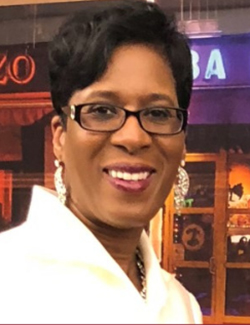 Darlene Bell (panelist) Darlene Bell (panelist) |
Darlene joined the QPI movement in 2017, when she served on the core planning team to launch QPI in Minnesota. She currently is a Racial Equity Leader for QPI-MN and supports QPI nationally in community advocacy. She has worked in the nonprofit field for over 30 years, with particular expertise in engaging communities of color and valuing cultural influences in the Twin Cities area. Darlene and her husband Curtis, have fostered more than 30 children and adopted five children since they began fostering 30 years ago. |
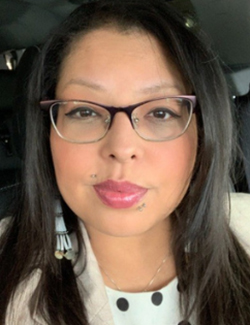 Shana King (panelist) Shana King (panelist) |
Shana is a Racial Equity Leader with QPI-MN and a parent mentor at the Indian Child Welfare Act Law Center in Minneapolis. She works toward the center’s mission to strengthen, preserve and reunite Indian families under the framework of the Indian Child Welfare Act. She is an enrolled member of MHA (Mandan, Hidatsa and Arikara) Nation in North Dakota. Shana was a recipient of the Casey Excellence for Children Award in 2016. |
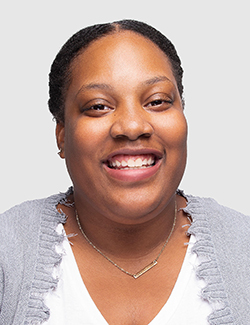 Carmella Hines (panelist) Carmella Hines (panelist) |
Carmella Hines, LSW, supports foster families, children and young people as a Licensing Worker for Family Alternatives. Carmella is a former young person in foster care and trans-racial adoptee. She has previously worked at a girls shelter in the role of Youth Counselor and as a Case Manager for families experiencing domestic violence. Trained as a QPI Champion in 2020, she is the Lead Supporter for the Youth Voice action work group, empowering youth to speak out for change and share their own journey in the foster care system. |
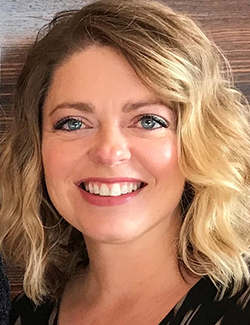 Kate Rickord, MA, LP, (moderator) Kate Rickord, MA, LP, (moderator) |
Kate enjoys collaborating and creating partnerships to support the well-being of individuals, families and communities. Kate is a founding leader in the Quality Parenting Initiative-Minnesota efforts and works to elevate the voice of lived experience individuals for system change. |
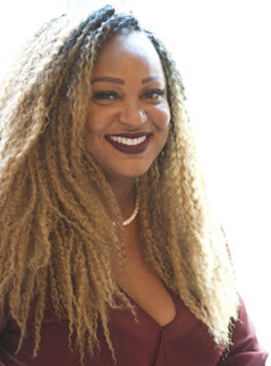
MJ (Maleeka Jihad), MSW |
Maleeka Jihad (MJ), MSW from MJ Consulting will lead a session. MJ Consulting is a grassroots organization dedicated to dismantling culturally incompetent practices and mitigating such practices impact on the community by challenging sources of oppression and inequity in the child welfare system. MJ will explore the colonizing mentality of the family regulation system including workers’ role in identifying the trauma footprints from a culture of individualism. The audience will learn about new ways of respecting collective culture in healing from the trauma of the family regulation system. |
This presentation will focus on supporting family connections when relative or kin are the foster placement. Presenters will offer insight into the unique family dynamics at play and how to facilitate these relationships in meaningful and healthy ways which will be supportive for parents, children, and their family system.
Keynote Speakers: Renee Banas, MA and Patrick Pisani
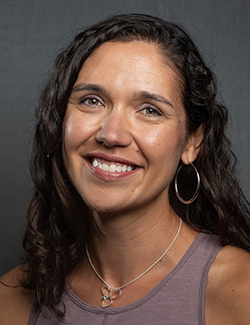 Renee Banas, MA Renee Banas, MAProgram Supervisor Ampersand Families |
Renee Banas, MA (she/her) is the Program Supervisor for the Kin Link/30 Days to Family® program at Ampersand Families. A second-generation adoptee of an Anishinaabe mother, she has been passionate in working on Ampersand Families initiatives to move forward in keeping kids connected to family, community, and culture. Renee has a professional background as an educator and takes great joy in empowering and strengthening families. Over the past four years at Ampersand Families, she has worked with many resilient and tenacious relative/kin families hoping to be permanency options for their loved ones. In her current role she supports her team in early and exhaustive family search and engagement, so that kids can stay connected to the people they love. |
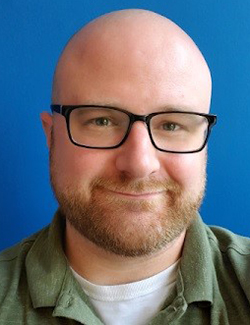 Patrick Pisani Patrick PisaniCoach & Trainer Institute for Child Welfare Innovation |
Patrick Pisani is a Coach & Trainer at the Institute for Child Welfare Innovation in St. Louis, Missouri. He has over 14 years of experience in the child welfare field, from foster care case management, child abuse and neglect investigation, and relative and foster home training and licensing. In 2015, Patrick began working as a 30 Days to Family® Specialist, conducting diligent and exhaustive search and engagement efforts for family members of children just entering the child welfare system. He believes that partnering with families is the key to stabilizing outcomes for children. Patrick loves training, coaching, and collaborating with his peers. |
Resources
- Why Relationships Matter
a training course from Amara Family Connections that explains why investing time and energy into relationships is essential to protecting children who have entered the foster care system - A series of four videos from Amara Family Connections discussing how birth parents and caregivers developed support systems with and for each other to coparent for the well-being of system involved children:
Yuvia’s Story
A Network of Family
The Power of Relationships: Sarah, Josh, and Samantha
Grayson’s Story - Seen Out Loud Podcasts by Institute for Family ( Episodes 2 and 4)
- Voices from the Field Audio Series by Casey Family Programs “How can birth and foster parents partner to achieve reunification?”
- Video about Including Fathers produced by the University of Washington that addresses the barriers that fathers and male family members face when building and maintaining relationships with children.
- Caregivers, Families and Substance Use Disorder
Family Connections Program training course to help gain understanding about SUD, what the science tells us about recovery and tips for partnering with parents struggling with SUD. - Video Role of Resource Parents in Supporting Family Recovery and Reunification produced by Children and Family Futures that outlines how Family Treatment Courts are engaging resource parents to better support families affected by parental substance use.
- Supporting Family Relationships for Incarcerated Parents-Parenting Inside Out
Parenting Inside Out (PIO) Curriculum developed for criminal justice involved parents that focuses on rebuilding and improving family relationships and parenting skills. - Protecting Relationships During Transitions Training Video
QPI workshop that gives tips on the elements and implementation of effective transition plans for seamless transitions of a child from one caregiver to another. Examples of tips include how to maintain relationships between child, relatives, and caregivers. - Article from Rise Magazine
Structures of Oppression in the U.S. Child Welfare System: Reflections of Administrative Barriers to Equity
Authors illustrate how systems of oppression in regulating family life that take the form of practices, policies, and laws or regulations contribute to racial disparities, reinforce economic hardships and support policies of family separation.
- Quality Parenting Initiative
A strategy of the Youth Law Center that focuses on strengthening foster care and refocusing on excellent parenting for all children in the child welfare system. - More on QPI from Casey Family Programs
- CHERISH Kindering
Program offering services to promote the social and emotional well being of children involved in the child welfare system that are in out-of-home placements. Services are for birth parents, relative caregivers and resource parents. - Children and Family Futures
Provides consulting, technical assistance, strategic planning, evaluation and training for child welfare, courts and substance use disorder treatment. - Children’s Trust Fund Alliance
National membership organization for state children’s trust funds. The Children’s Trust Fund Alliance provides support to state children’s trust and prevention funds. - Family Connections Program
A collaboration among parents, caregivers, and child welfare organizations designed to build and support relationships between the people in a child’s life experiencing out-of-home-placement. - Foster Kinship
Nevada based organization that provides evidence informed programs that strengthen kinship caregivers capacity to provide safe, permanent and nurturing homes. Foster Kinship provides kinship caregivers with information, advocacy, case management, and training to help caregivers access legal, financial and support services.
- Birth and Foster Parent Partnership: A Relationship Building Guide
Guide created in collaboration with parents and the Children’s Trust Fund Alliance, Youth Law Center’s Quality Parenting Initiative, and Casey Family Programs that gives tips to help create and sustain positive relationships between birth families, foster families and kinship caregivers to best support the children and youth in their care. - CHAMPS (Children Need Amazing Parents) Policy Playbook
Research and policy examples and best practices aimed to inform and inspire state and tribal policy efforts to improve the lives of children and youth in foster care. The Policy Playbook explores the benefits of shared parenting and how implementing a shared parenting framework into agency policy can help reduce conflicts between birth and foster parents and can help facilitate reunification. - Equipping Foster Parents to Actively Support Reunification
AdoptUSKids resource for child welfare professionals to help address the importance of the foster parents’ role in reunification. The resource includes tips on building practices and implementing policies that reinforce partnerships between birth and foster families. - Foster & Kinship Parent Recruitment and Support Best Practice Inventory
Redlich Horwitz Foundation & ChildFocus developed a “best practice” inventory on key steps to finding and keeping kin and non-kin foster parents. - Shared Family Care and Shared Parenting
Child Welfare Information Gateway’s comprehensive list of programs, research and services that support partnerships between birth families and caregivers. - Shared Parenting: Training Participant Workbook
North Carolina Department of Health and Human Services, Division of Social Services in-depth training for child welfare practitioners. The workbook emphasizes foster parents’ role in supporting birth parents, implications for practice and principles of the foster family/birth family partnership and more. - Starting a Visit Journal between parents and caregivers
Katie Biron of Fostering Connections shares tips on how to take steps in building a relationship between parents and caregivers by using a communication journal.
- Children and Families Affected by Parental Substance Use Disorders
National Center on Substance Abuse and Child Welfare’s highlighted resource to help reduce the stigma of Substance Use Disorders. - CoParenting and Healthy Relationship and Marriage Education for Dads (CHaRMED)
ChildTrends Federal evaluation effort designed to better understand how Responsible Fatherhood Programs support healthy marriages/relationships and coparenting.This study helped to identify gaps in services, and outline recommendations for addressing gaps. - Structures of Oppression in the U.S. Child Welfare System: Reflections of Administrative Barriers to Equity
Authors illustrate how systems of oppression in regulating family life that take the form of practices, policies, and laws or regulations contribute to racial disparities, reinforce economic hardships and support policies of family separation. - Supporting Successful Reunifications
Child Welfare Information Gateway’s bulletin for professionals providing examples of frameworks and practices that support family reunification. The bulletin also provides resources for casework frameworks and practices, parent support systems, and legal system involvement.

